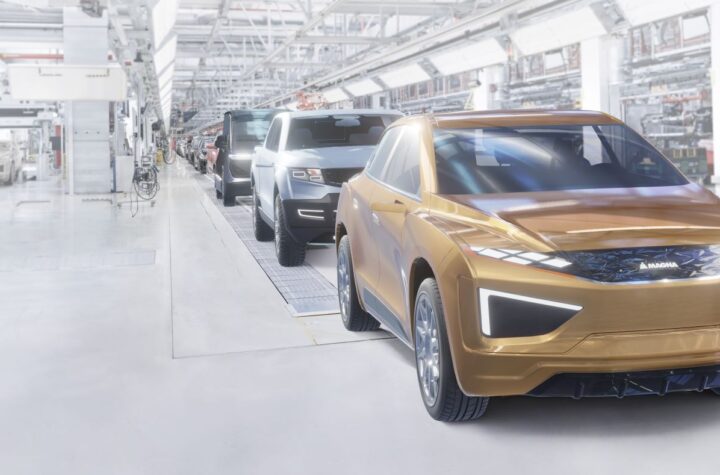
If you want to save American manufacturing jobs then buy the cars that are manufactured here.
Following a recent presidential debate, an audience participant complained that neither presidential candidate had a clear answer to the problems of lost manufacturing jobs and trade deficits. Another was critical of the candidates’ positions on taxes and the gap between tax revenues and government spending, thus creating the national deficit. Oddly, there appears to be in the American psyche an inability to connect the dots. These connections are short and direct. If you manufacture, wealth is created and the various governments tax the process, thus alleviating some of the deficit.
As our automotive industry is often held up as the poster boy of mammoth trade losses, computing the gap between U.S. automotive production and sales is a reasonable exercise in connecting the dots. There is, of course, give and take in the process; we export some units but unfortunately for our job and tax base, we import far more. We all know the long-term causes: high costs here, lower costs there, management ineptitude, product proliferation and nichism, three U.S. “domestics” vs. a dozenplus competitors and the “who needs manufacturing?” cry of the service crowd, plus a few reasons you may want to add from your personal list. Whatever the cause, in 2003 we in the United States produced 4.34 million fewer vehicles than we sold with a considerable loss of jobs and tax revenue, and as shown in the table, the losses, over time, have increased.  The generally accepted figure for our total tax load from townships, counties, states and the federals is 33 percent of GDP. To keep the math comprehensible and to quiet arguments about the percentage of imported production parts, a low $15,000 per-unit out-the-factory-door value multiplied by the 4.34 million lost vehicles rings up to $64.5 billion economic value loss and the lost taxes alone hit $21.7 billion for just that one year.
The generally accepted figure for our total tax load from townships, counties, states and the federals is 33 percent of GDP. To keep the math comprehensible and to quiet arguments about the percentage of imported production parts, a low $15,000 per-unit out-the-factory-door value multiplied by the 4.34 million lost vehicles rings up to $64.5 billion economic value loss and the lost taxes alone hit $21.7 billion for just that one year.
The $21.7 billion tax loss is the economic measure. The psyche is a different matter. For many years, anyone in the U.S. that even hinted that it was a good thing to buy something made by a neighbor (rather than from a stranger) was immediately accused of at best being a dimbulb Luddite, or even worse, a protectionist. In my youth as a World War II veteran fresh out of college, I was an open-border advocate and approved of the billions we spent rebuilding Europe and Japan. At one point, here in the U.S., I sold Mercedes franchises and then wholesaled Mercedes cars to those dealers. However, after wending my way through years of the differing trade, tax, monetary and economic policies of the world, my views slowly changed as the VATs, spurious inspections, manipulated currencies and xenophobia of others dampened my early enthusiasm.
An early turning point was in the late 1950s when one of my Mercedes dealers, also selling an Asian car, cheerfully pointed out that because of a lower price, the Asian car saved the buyer $200. I countered that the tax loss alone was $400, so our total economic system was out $200. Exhibiting the American psyche, he walked away, as has almost everyone that has subsequently been asked to think about world economics. Strangely, many Americans have even been convinced, by a very powerful lobby group, that dealers who sell imported cars add to the economy, this despite the obvious fact that the distribution system is economically neutral and the overseas production of the product is a strong negative.
Again, over the years, I sold, promoted, leased and owned European- and Asian-built vehicles, and some family members against my advice still do, but today I believe there is an advantage in sustaining our own economy, not overseas economies. This is not an issue of brand, it is about jobs and taxes. If a person has a personal desire for an Asian or European brand, fine, but that individual can put their money back into our tax and job system by buying one of their products produced in this country. Next down the line in national economic value are NAFTA units and the greatest tax and job losses come from products brought in by boat. That is just as true for shoes as it is for vehicles.













More Stories
From Gasoline Powered Cars To Electric Vehicles | Electric Moped Bike A Best Alternative
Rubbernecking: A Silly Reason for Car Accidents
Flexible Magna Manufacturing Solutions: The Key to Success in the Automotive Industry